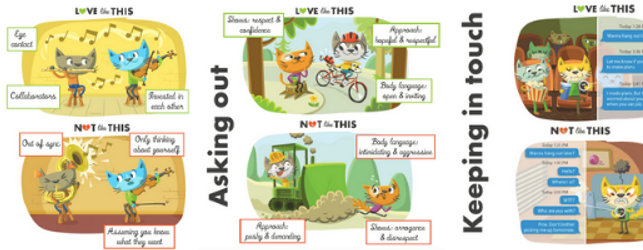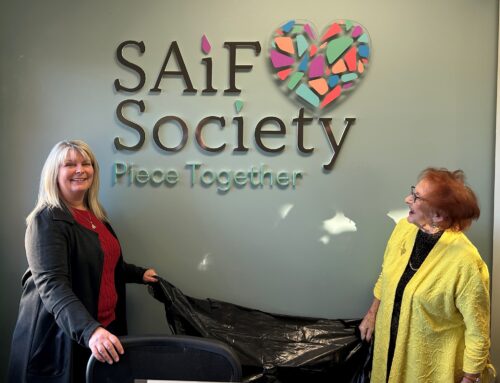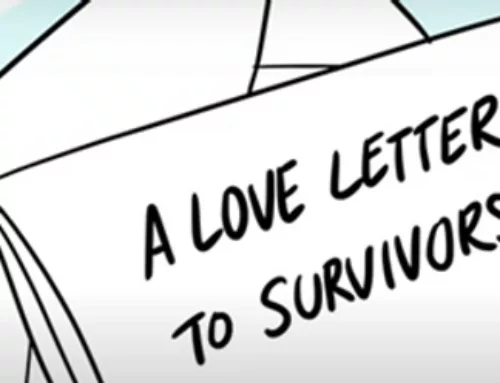The month of February is a chance for us to explore a number of intimate partner relationship behaviours that often begin for young people when they start dating. We’ve gathered a number of resources that are available to empower, educate, & inform teens about healthy dating, healthy relationships, & how they can learn more.
Love Like This Series (or the 6 Stages of a Dating Relationships)
Many people often face similar challenges & questions when it comes to dating. When is it respectful to approach someone you like? How do you avoid being creepy? What do you do when someone gets too needy or isn’t meeting your needs? Is being jealous normal? How do you argue without blowing up? How do you handle breaking up with someone?
Thanks to our friends at the Washington State Coalition Against Domestic Violence, who graciously granted permission for us to use their series, we’ve developed 6 weeks of social media posts with tips, tricks, & strategies for healthy dating which we’ve summarized here:
Making a Move: Thinking about making a move on someone you like?
Asking Someone Out: How do you approach asking someone out?
Keeping in Touch: How do you communicate your needs in a healthy way?
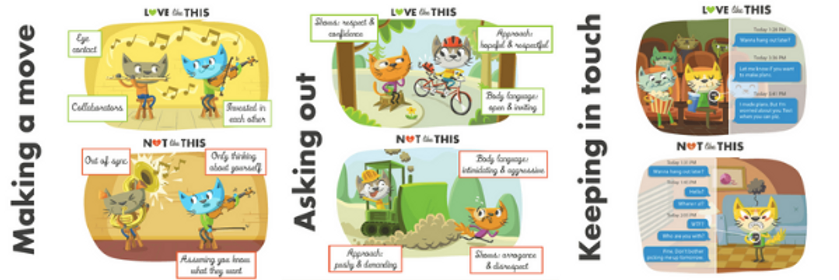
Jealousy: How do you deal with jealousy in a way that won’t harm your relationship?
Fighting Fair: When conflicts and disagreements arise, how do avoid having them blow up?
Breaking Up: How do you break up respectfully? How do you handle a break up respectfully?
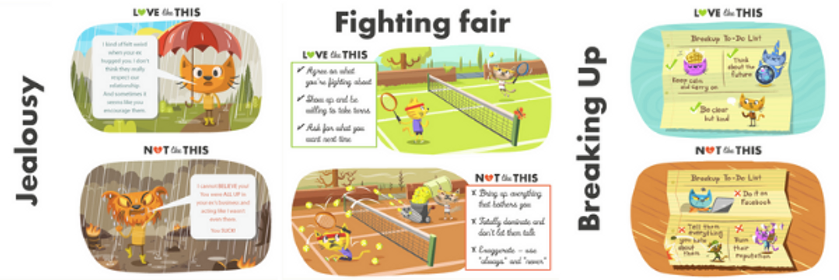
Dealing with Non consensual Image Distribution (sometimes referred to as ‘Revenge Porn’)
In 2015, it became a criminal offence to knowingly publish or distribute an intimate image of a person knowing that the person in the image did not consent to its distribution (or being reckless about whether the person consented). As defined by Canada’s Criminal Code, an “intimate image” can be a visual recording of a person (by any means) in which the person is nude, or exposing their genitals, anal region or breasts, or is engaged in explicit sexual activity, and at the time of the recording, there was a reasonable expectation of privacy in either its recording, and/or distribution.
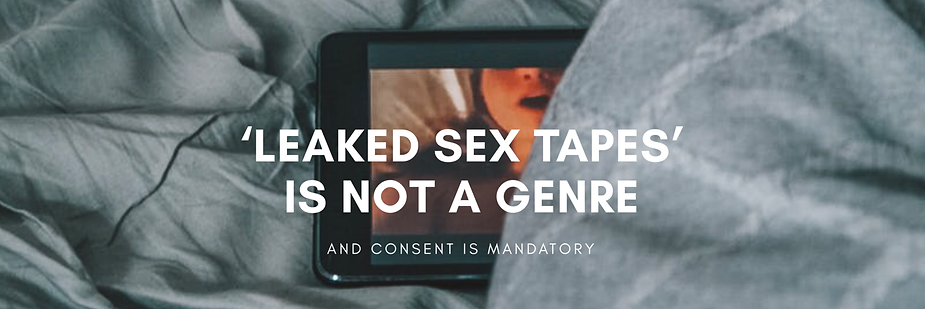
It’s important to note that once an image is digitally recorded, it may become very difficult or next to impossible to control where it appears or who sees it. While you may consent to having an image taken/recorded, you may not intend or give consent for it to be shared with others or think you have an understanding that it remains between you and your partner. And while your consent can always be revoked, it may not be easy to destroy an image once it’s no longer within your control or prevent it from being seen.
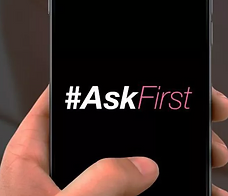
And while female identifying people are often the most shamed, harassed, bullied, and/or victimized by non consensual image distribution, it can hurt people of any gender. As we mentioned before, if you’re sharing such images or posting them online without consent, you could be charged under the Criminal Code of Canada. While there may be ways to report someone who’s shared non consensual images of you, we often focus on prevention and safety whenever possible. Inform and empower yourself whenever you can:
- Ideally, you’d avoid the whole situation entirely by never recording images of yourself or allowing anyone to record images of you in a way that may embarrass or impact your life negatively. Unfortunately, that’s not always possible. People we trust can harm us or take advantage of the situations we may find ourselves in.
- Be clear about consent whether you’re recording the image or having an image of yourself taken. We have a blog on consent that might help you out. Set boundaries and make it clear to your partner what’s okay and what’s not okay. Caring about you means respecting your boundaries. If they don’t, leave or call for help if you can.
- Make sure all images of you are taken on your phone that’s password protected or secured in such a way that only you can open it and/or share those images. And never share the images or recordings. If you delete them from your phone, know that they can still be retrieved in some cases.
Cyberstalking & Online Safety
Anyone can be victimized online and because young people spend significant amounts of time staying connected to and/or gaming with, friends, classmates, family, & even strangers, you could be in more danger than you may realize. Again, we’re all for informing & educating so that we can make informed choices for ourselves. We’ve got some blogs to help you out:
We also have presentations we offer to schools, youth groups, & sports teams on:
If you’d like these offered in your school, ask your teacher, principal, or school counsellor to give us a call to book.
Resources & Supports for Those in Unhealthy Relationships
If you’re a young person struggling with an unhealthy, abusive, or harmful dating relationship, there are numbers you can call 24/7 including:
- Kids Help Phone – you can text, call, or email.
- Alberta’s One Line for Sexual Violence – 1-866-403-8000
- Alberta’s 211 Line – just dial 211
If you’re looking to access counselling supports from SAiF, we do have youth counselling but parental consent is required for those under 18. If you can talk to your parents about reaching out to us for services, please have them book a phone consult – via phone or email (780-460-2195 ext 301 or info@saifsociety.ca). If you’re 18 years of age or older, you can contact us directly for services & supports using the same contact info as above.
